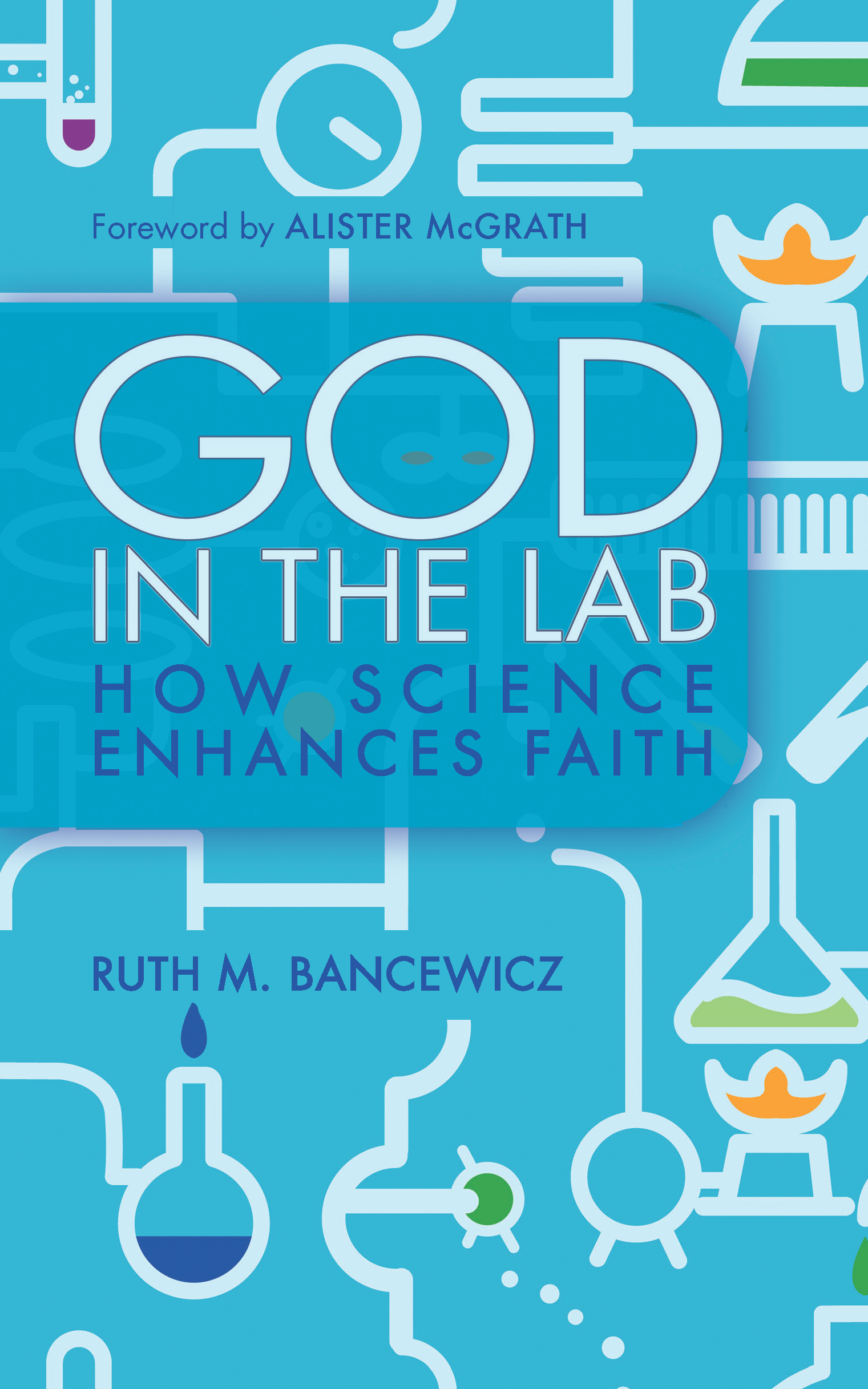
God in the Lab by Ruth Bancewicz explores the 'human side of science', considering how science and Christian faith can enrich and enhance one another as we go about daily life in the lab.
Below you'll find material for 5 sessions exploring the themes and ideas raised in 'God in the Lab'. You could use these questions to shape your conversation as you read along with a friend, or as part of a Science Network Hub. If you'd like, read a review here before you start.
Session 1: The Theologian and the Telescope/Life in the Lab
Before the session: read chapters 1 and 2.
The book opens with a quote from Francis Collins, former director of the Human Genome Project:
'‘Science is not threatened by God; it is enhanced.’
1. How does Bancewicz explore this quotation in the first chapter? Did anything in particular strike you?
2. What has your personal experience of this been? Do you agree/disagree?
3. What did you think of Bancewicz's description of ‘life in the lab’? Did anything surprise/intrigue/excite you? Anything you didn’t like the sound of?
4. Page 20-21 explores the three groups that Andy Crouch observed at Harvard University – the “strivers”, the “legacies” and the “children of grace”, with the third category being the most likely to stick with a science degree. How could seeing science as a gift from God help you to genuinely enjoy your studies and share that with others?
“People often ask me ‘How on earth do you end up with such high productivity from such a small lab?’ I will reply that I believe God has allowed that to happen – it’s not just by chance. The things we have worked on are actually something God delights in, and delights to show people. At the end of the day, it’s quite a religious experience doing science.” – Harvey McMahon (p41).
5. Why do you think that God would delight to show people that which is discovered in scientific research?
6. How might that impact how you relate to your own studies in science?
As you finish your discussions, spend some time giving thanks to God for science and the ability to discover things about His creation. Give thanks for your own studies, and the way that it could help you know God more.
Session 2: Christianity and Science
Before the session: read chapter 3.
‘We must find the right thread on which to string the pearls of our observations, so that they disclose their true pattern.’ – William Whewell, scientist & philosopher.
1. The ‘thread’ to which William Whewell speaks about is like a ‘worldview’ – the lens through which we make sense of everything around us. How can that help as we seek to answer questions about our world?
Bancewicz explains that ‘Science can tell us how things are, but it cannot tell us how things ought to be.’ (p47)
2. Why might it be important to be able to explain not just how things are, but how they ought to be?
3. How does Bancewicz describe how her faith affects all of her life? How could that challenge some of your attitudes towards your studies/hobbies/relationships?
4. What do you think your coursemates think about the relationship between Christianity and Science?
5. How could this chapter help as you seek to tell them about Jesus?
As you finish, why not spend time giving thanks for the fact that science doesn’t contradict faith, but rather it enhances that. Perhaps you could pray for course friends by name that you’d love to help see this truth.
Session 3: Creativity and Imagination
Before the session: read chapters 4 and 5.
‘Creativity could be defined as “the ability to bring about the new and valuable” : value being measured by truth, goodness, beauty or usefulness’. (p66)
1. What do you think of this definition of creativity?
2. How do creativity, faith and science intersect?
3. How can faith spur on our creativity?
‘For scientists like Jennifer Siggers, this process of hypothesizing and testing – both in and out of the lab – leads them to God. Jennifer said that “science makes much more sense if there is, at some deep level, a truth that we’re pursuing”. For her, mathematics has its origin in God. Through her work she is “discovering what he’s already put there, and it’s absolutely beautiful”. (p105)
4. If there definitely an answer to the question we are asking, a ‘truth that we’re pursuing’, how does that liberate us to think imaginatively in our approach to scientific research?
5. Imagination is a word with lots of connotations! How might this chapter define imagination?
6. How does knowing God shape the way that we use our imagination? Why?
As you finish, spend time giving thanks to God for the way that he has made us, that we are able to be creative and imaginative in his image. Pray that God will help us to be responsible with the gifts that he has given us, that we will use them in ways that positively impact the world that we live in.
Session 4: Beauty and Wonder
Before the session: read chapters 6 and 7.
“The heavens declare the glory of God;
the skies proclaim the work of his hands.
Day after day they pour forth speech;
night after night they reveal knowledge.
They have no speech, they use no words;
no sound is heard from them.
Yet their voice goes out into all the earth,
their words to the ends of the world.
In the heavens God has pitched a tent for the sun.
It is like a bridegroom coming out of his chamber,
like a champion rejoicing to run his course.
It rises at one end of the heavens
and makes its circuit to the other;
nothing is deprived of its warmth.”
Psalm 19:1-6
1. What do you make of the idea that God can be known through the beauty discovered in science? Why?
2. What in your own field do you find to be ‘beautiful’? How could that help you as you seek to praise God and tell others about him?
Bancewicz expresses an idea from German theologian Jürgen Moltmann on wonder: ‘Moltmann believed that humility is basic to our sense of wonder; it involves accepting that there is something greater than us or outside of our control, and that is also the best attitude to God.’ (p188)
3. Do you think that humility is the natural posture of those on your course when it comes to the potential of scientific research? Why?
4. How does humility help us to marvel at God with fresh eyes? How might you be able to cultivate that in your own studies?
Give thanks together as a group for the beauty of God’s creation. Why not praise Him today for some amazing things that you’ve seen recently on your course!?
Session 5: Awe and Conversation
Before the session: read chapters 8 and 9.
1. What is the feeling of ‘awe’ as described in this chapter?
“For most Christians working in science, their work helps them to worship. The dazzling intelligibility of the world increases our humility before an awesome God, and worship happens for a scientist when they turn that humility and awe towards God and thank him for the universe he has made.” (p213)
2. When seeing something amazing in science, who/what might your course mates give the credit to?
3. Bancewicz says that ‘scientific research itself can be done as an act of worship.’ (p213) How would believing that change the way that you interact with your studies? What would be different?
Read Psalm 111
4. How might your field of science incite worship of God and enhance your faith?
5. What from reading this book has encouraged/challenged you?
6. How could you use what you’ve learned to continue to live and speak for Jesus on your course?
As you finish up your time in this book together, give thanks that science helps us to worship God and enhances our faith in Him. Pray together that this will shape the way that we approach our course, and that our friends will see the way that science leads us to loving God more.
Enjoyed this resource? You might like these other resources on a similar topic:

